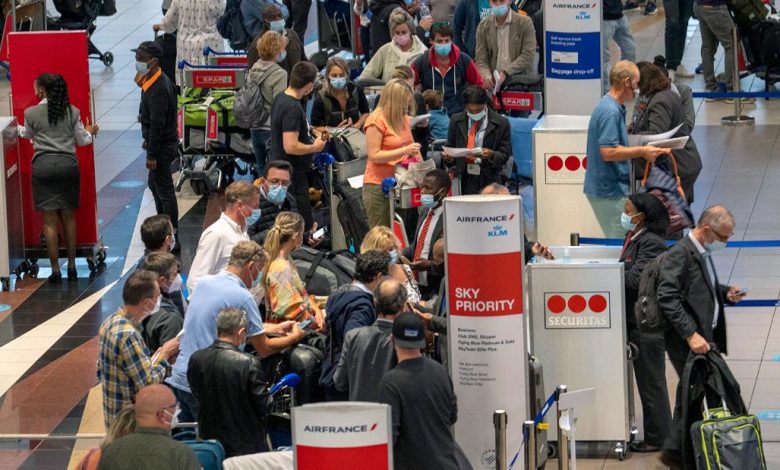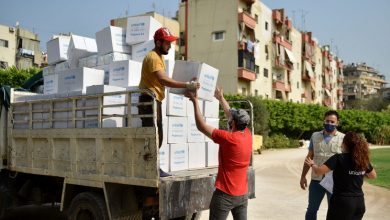Omicron: The world is on high alert for the new coronavirus variant

Variants to date have been found in Botswana, Hong Kong and Belgium. The European Center for Disease Prevention and Control said on Friday that there is a “high to very high” risk that the new variant will spread in Europe.
GGD Kennemerland, the city health authority responsible for Amsterdam Schiphol airport, said the positive test result would be tested as soon as possible. Dutch authorities added that those who tested positive had been placed in isolation at a nearby hotel.
But while the WHO designated Omicron a “variant of concern” on Friday, it stressed that more research is needed to determine if the variant is more contagious, whether it causes disease. more severe and whether it can evade the vaccine.
“This variant has a large number of mutations, and some of these mutations have some disturbing characteristics,” Maria Van Kerkhove, WHO technical lead on Covid-19, said in a statement today. Friday.
“There’s a lot of research going on right now… very little information is available so far but those studies are ongoing so we need researchers to have time to do those studies. and WHO will notify the public and our partners and member states as soon as we have more information,” she added.
Lawrence Young, a virologist and a professor of molecular oncology at Warwick Medical School in the United Kingdom, said the Omicron variant was “very disturbing.”
“This is the most heavily mutated version of the virus we’ve seen to date. This variant carries some changes that we’ve seen before in other variants but never in the same virus. It also has new mutations,” Young said in a statement.
South Africa is cut off
The United States, European Union, United Kingdom, Australia, Japan, Russia, Brazil, Saudi Arabia, Israel, Egypt, Philippines, Thailand and several other countries have announced or proposed a ban on flights from this area.
Most, including the US, have restricted travel from South Africa, Botswana, Zimbabwe, Namibia, Lesotho, Eswatini, Mozambique and Malawi.
The South African government took issue with the travel ban, pointing out in a statement that the Africa Centers for Disease Control and Prevention “actually discourages” a travel ban for people arriving from countries have reported this variation.
“During the duration of this pandemic, we have observed that imposing travel bans on travelers from countries where a new variant was reported has not yielded meaningful results.” , the statement said.
Scientists have praised South African health authorities for their quick response to the Covid-19 outbreak in the country’s Gauteng province, which led to the discovery of the new variant.
As cases in the province began to increase at a higher rate than elsewhere, health professionals focused on sequencing samples from people who tested positive, which allowed them to quickly identify identified variant B.1.1.529.
Peacock said South Africa’s Department of Health and its scientists “will be applauded for their response, their science and in sounding the alarm to the world.”
She added that the development demonstrates the importance of having excellent sequencing capabilities and sharing expertise with others. That message has been reinforced by the WHO, which has called on countries to step up surveillance and sequencing efforts to better understand coronavirus variants.
However, Dr Richard Lessells, an infectious disease expert at the University of KwaZulu-Natal in Durban said South Africa was being “punished” for its transparency and ability to quickly handle variations and raise issues. with international health authorities.
“What I find disgusting and really saddens… is not just the travel ban being implemented by the UK and Europe but that is the only response or the strongest response. No words of support. Which countries are they going to bring to African countries to help us control the pandemic,” he told CNN.
CNN’s Martin Goillandeau, David McKenzie, Ghazi Balkiz, Laura Smith-Spark, Sharon Braithwaite, Antonia Mortensen, Tim Lister and Lauren Lau contributed reporting.
.




